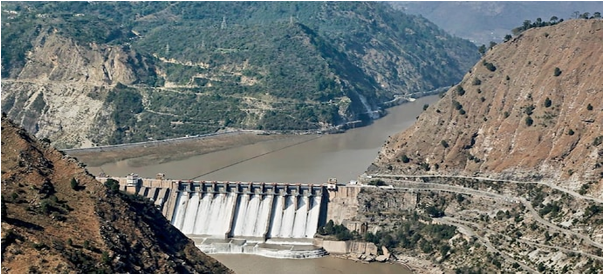INP-WealthPk
Qudsia Bano
The Indian government’s unilateral suspension of the Indus Waters Treaty (IWT) has ignited a wave of diplomatic tension with Pakistan, further destabilising an already volatile South Asian region. This historic treaty, mediated by the World Bank in 1960, governs the distribution of the Indus River and its tributaries between the two nuclear-armed neighbours. Its suspension is being seen in Islamabad as not only a violation of international law but a direct threat to Pakistan’s water security, economy, and regional peace.

According to Pakistan’s Foreign Office, India’s actions constitute a blatant breach of the treaty’s binding obligations. “India is using water as a weapon of war,” a senior official said, warning of severe consequences if the international community fails to intervene. The suspension disproportionately affects Pakistan’s agriculture-dependent economy, which relies on the Indus Basin for irrigation and livelihood.
Experts warn that the move could reduce water flow into critical regions such as Punjab and Sindh, leading to food shortages, unemployment, and social unrest. Dr Aijaz Ahmed, Senior Economist at Pakistan Institute of Development Economics (PIDE), expressed grave concern: “India’s suspension of water flow is not just a geopolitical manoeuvre; it’s an attack on Pakistan’s agricultural economy, food security, and rural livelihoods.
Around 90% of Pakistan’s agricultural activity depends on the Indus Basin. Tampering with this system is akin to economic aggression,” he said. In addition to its regional implications, the suspension is raising alarms at the international level. Dr Hamid Haroon, former senior economist at the World Bank, warned of broader consequences: “If a historic and successful treaty like the Indus Waters Treaty can be violated without accountability, it sets a dangerous precedent for water-sharing disputes globally.
From Africa to Central Asia, many regions could descend into conflict if legal mechanisms are undermined by political power plays.” Global organisations, including the United Nations and the World Bank, a mediator of the original treaty, are being urged by Pakistan to take immediate notice. Legal experts in Islamabad are also preparing to raise the matter at international arbitration forums, including the Permanent Court of Arbitration and the International Court of Justice.
Civil society, environmentalists, and human rights groups in Pakistan have strongly condemned the move, calling it a “humanitarian crisis in the making,” citing its potential to displace river communities, damage ecosystems, and escalate bilateral hostility. As tensions mount, analysts fear that water, once a symbol of cooperation between the two rivals, may now become a flashpoint for further conflict, unless swift diplomatic intervention is secured.
Credit: INP-WealthPk













